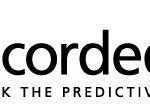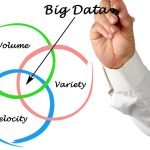Jessops (photographic retailing), JJB Sports (British Sports retailer), Comet Group (Electrical retail chain), Habitat (retailer of household furniture) and Borders (international book and music retailer) have all recently entered into administration. Perhaps the one commonality is that they failed to remain tuned to their environment and changing customer requirements, so … [Read more...] about Want To Get Ahead Of The Competition? Put Big Data Analytics At The Heart Of Your Corporate Strategy
Big Data
Learn everything you need to know about big data. Find out how companies are using this revolutionary technology and what it means for your business strategy.
Three Innovative Ways How Big Data Will Improve the Healthcare Industry
The healthcare is rapidly becoming another digitized industry that will generate vast amounts of data that can be analysed. Taking into account that a fully sequenced human genome accounts for 100 gigabyte of raw data, it may be clear that the healthcare industry will generate vast amounts of data in the coming years. All that data can be analysed to create tailored medicines, … [Read more...] about Three Innovative Ways How Big Data Will Improve the Healthcare Industry
IBM Develops a Cognitive Computer for the Big Data Era that Thinks Like Us – Video
Although the computers to date are capable of handling vast amounts of data, they still do that with separated memory and processing and doing all the steps in a sequential order. IBM is developing a new type of computers, cognitive computers that can be trained with artificial intelligence and machine-learning algorithms to become more like humans and deal with data the way … [Read more...] about IBM Develops a Cognitive Computer for the Big Data Era that Thinks Like Us – Video
Recorded Future Focuses on the Art of Predictive Analytics
Company Recorded Future Address Cambridge, USA 1430 Mass Ave Cambridge, MA, 02138 USA Founders Erik Wistrand, Staffan Truv & Christopher Ahlberg Founded 2009 Funding $ 20.9 million Employees 48 Website www.recordedfuture.com/ Rating 7 bits Predictive analytics are becoming more important as they are the most valuable analysis within big data as they help … [Read more...] about Recorded Future Focuses on the Art of Predictive Analytics
Why The 3V’s Are Not Sufficient To Describe Big Data
It is generally accepted that big data can be explained according to three Vs: Velocity, Variety and Volume. In a 2001 research report, META Group (now Gartner) analyst Doug Laney defined big data as being three-dimensional, i.e. increasing volume (amount of data), velocity (speed of data in and out), and variety (range of data types and sources). Later in 2012 Gartner updated … [Read more...] about Why The 3V’s Are Not Sufficient To Describe Big Data
What is big data?
Big data is a term that refers to the massive amount of digital data created and shared every day. Big data can transform how we live, work, and communicate. It can be used to improve everything from public health and urban planning to business and marketing.
Big data is also changing the way we think about privacy and security. The volume, velocity, and variety of big data present challenges and opportunities for organizations and individuals. Regardless, big data is here to stay, and its impact will only continue to grow in the years to come.
What is big data analytics?
Big data analytics is the process of turning large, complex data sets into actionable insights. Businesses use various analytical tools and techniques, including machine learning and statistical analysis, to do this.
Big data analytics can be used to improve decision-making in areas like marketing, operations, and customer service. It can also be used to identify new business opportunities and optimize existing processes. With the help of big data analysis, businesses can gain a competitive edge by using their data better.
Want to learn more about big data? Datafloq has courses available. Contact us to get started.
When was big data introduced?
The term big data was coined in the 1990s, with some giving credit to John Mashey for popularizing the term. However, the concept of big data has been around for much longer.
Where does big data come from?
In the early days of computing, scientists and businesses began to realize that the amount of data being generated was increasing exponentially. As a result, they began to develop new methods for storing and processing data.
Over time, these methods have become increasingly sophisticated and have played a key role in enabling businesses to make sense of vast amounts of information. Today, big data is used in various industries, from retail to healthcare, and its importance is only likely to grow in the years to come.
What are examples of big data?
One of the most common examples of big data is social media data. With over 2 billion active users, Facebook generates a huge amount of data every day. This includes information on user interactions, posts, and even location data. Analyzing this data can help companies better understand their customers and target their marketing efforts.
Another example of big data is GPS signals. These signals are constantly being generated by devices like cell phones and fitness trackers. When combined with other data sets, GPS signals can be used to provide insights into everything from traffic patterns to human behavior. Finally, weather patterns are another type of big data set. By tracking these patterns over time, scientists can better understand the impact of climate change and develop strategies for mitigating its effects.
How do companies use big data?
Companies use big data in marketing, product development, and customer service. By analyzing large data sets, businesses can identify patterns and trends that would be otherwise difficult to spot. For example, a company might use big data to track customer behavior patterns to improve its marketing efforts.
Alternatively, a company might use big data to improve its products by identifying areas where customers are most likely to experience problems. For instance, big data can be used to improve customer service by finding pain points in the customer journey. Ultimately, big data provides companies with a valuable tool for gaining insights into their business operations.







